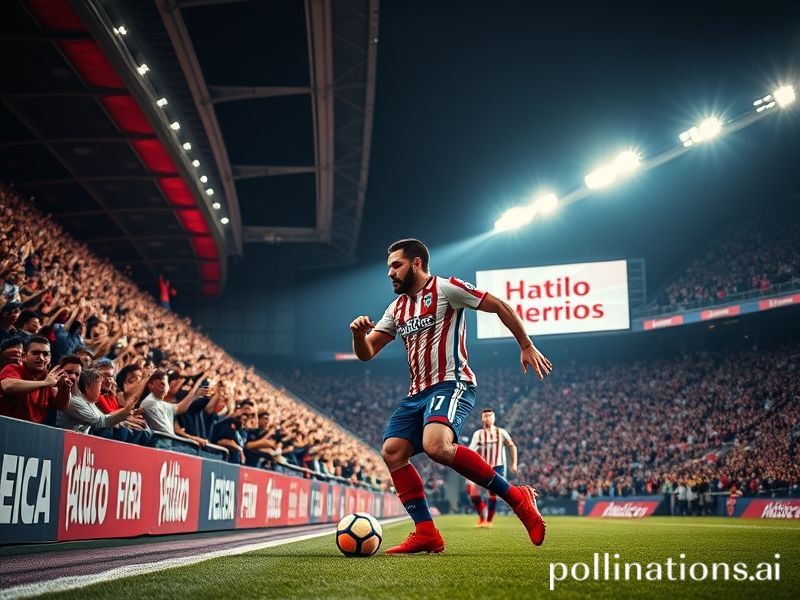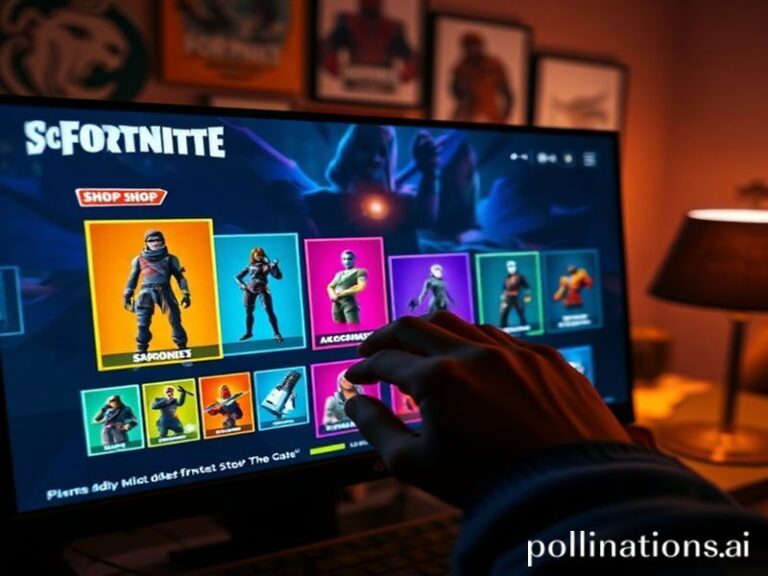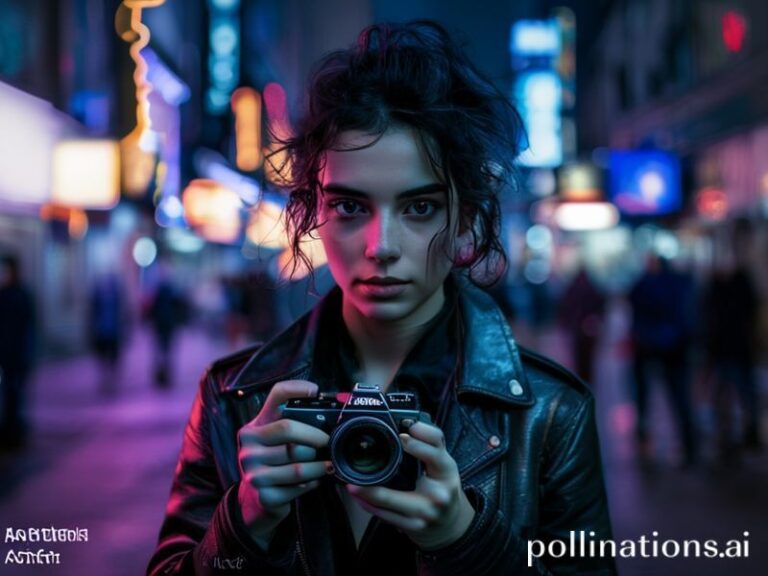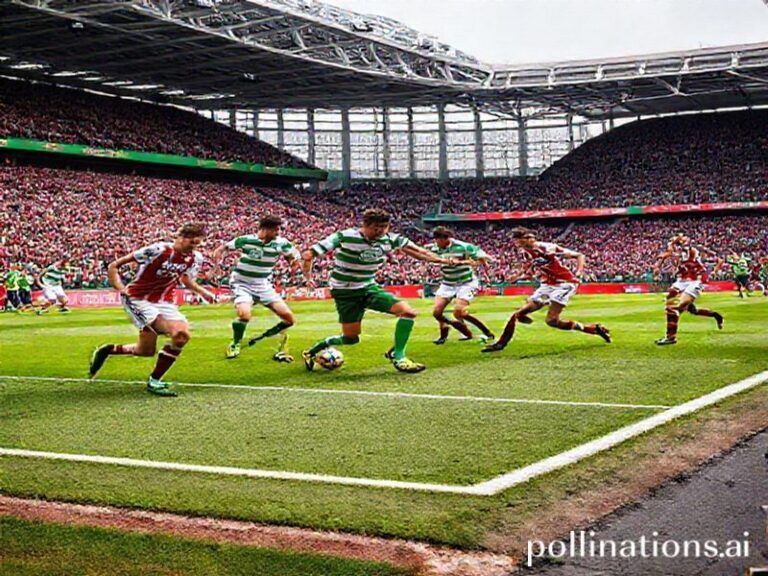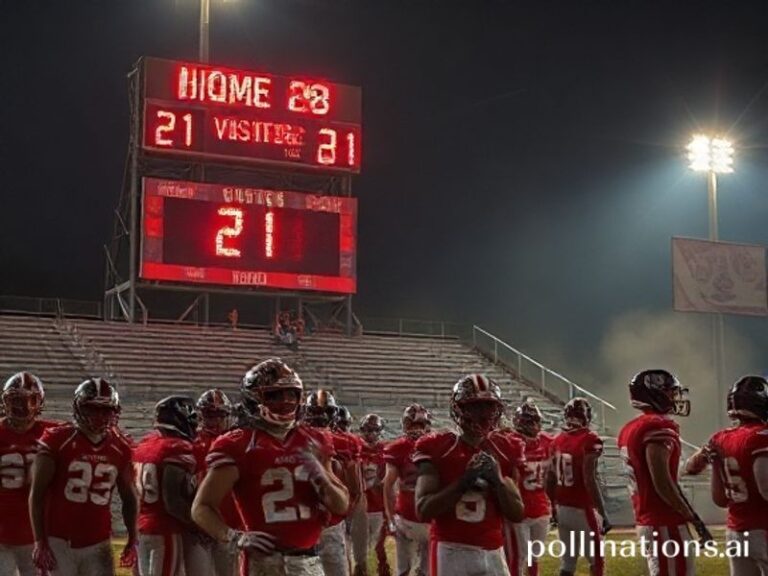Madrid’s Civil War: How a Local Derby Became the World’s Favorite Identity Crisis
Atlético Madrid vs Real Madrid: A Civil War With Sponsors and Stock Tickers
If the Cold War had been played on grass, it would have looked a lot like Saturday night at the Metropolitano. Two halves of the same city, one obsessed with status symbols, the other with grievance and grit, meet for the 234th installment of a family feud so old it predates both TikTok and democracy in Spain. On the surface it’s merely a football match; in practice it’s a referendum on how the 21st-century world orders its hierarchies.
Real Madrid arrive in their usual role: the global aristocrat with diplomatic immunity from irony. Their shirts are currently emblazoned with “Emirates Fly Better,” which is true provided you can afford the upgrade to lie-flat seats. Their squad cost more than the GDP of several Pacific island nations, and their president, Florentino Pérez, has the serene confidence of a man who believes the Super League is still just a napkin sketch away from reality. Watching Real is like watching Davos take corner kicks—efficient, corporate, faintly bored with the whole affair.
Atlético, meanwhile, are the moody sibling who went to art school and keeps bringing up childhood trauma. Diego Simeone has spent twelve years transforming underdog aesthetics into a marketable brand of muscular nihilism. His team tackles like they’re auditing existential dread: if we can’t have beauty, at least we’ll have ball retention and bruises. The club’s balance sheet is healthier than ever, thanks to Chinese real-estate money and a cryptocurrency sponsor whose website went offline during last year’s derby, a glitch so poetic even the ultras applauded.
The international stakes are absurdly high for ninety minutes of kicking. Arab sovereign funds monitor the match via encrypted streams to calibrate soft-power investments. North American private-equity firms in Manhattan co-working spaces run Monte Carlo simulations on whether Federico Valverde’s box-to-box lunges will goose quarterly returns. In Seoul, a 19-year-old influencer live-reacts to every Luka Modrić pirouette for an audience that thinks the Spanish Civil War is a Netflix limited series. The planet’s attention span is shrinking; the derby reliably fills the gap between geopolitical meltdowns.
Europe itself seems to outsource its identity crises to this fixture. Real embody the continent’s neoliberal after-party: open borders, free cash, and photo-ops with the crown prince. Atlético channel the defensive nativism creeping into every election: fortress mentality, distrust of flair, and a fondness for collective punishment. Each slide tackle is a miniature culture war; each VAR review a Geneva Convention hearing.
And yet the joke is on all of us, because both clubs are ultimately subsidiaries of the same global entertainment complex. The players swap shirts afterward because the shirts are manufactured in the same Bangladeshi sweatshop. The Ultras Sur and Frente Atlético scream murderous threats at each other, then go home to the same Airbnb-blighted neighborhoods where nobody local can afford the rent. The derby is marketed as an ancient rivalry, but it’s really a joint venture: El Clásico’s scrappier, more profitable cousin.
Kickoff approaches. Outside the stadium, street vendors sell knock-off half-and-half scarves, a textile oxymoron that sums up late capitalism better than any economics textbook. Inside, the PA system blasts a bilingual version of “Seven Nation Army,” proof that even fascist-adjacent chants can be focus-grouped for inclusivity. The world’s cameras zoom in on Jude Bellingham’s jawline—England’s future prime minister, according to at least one tabloid—and on Antoine Griezmann’s waning smile, the face of every millennial realizing the pension age is now infinity.
When the final whistle blows, one set of fans will pretend the result reorders the cosmos; the other will pretend it doesn’t matter because the Champions League is the real test. Both will be wrong, and both will be back here in three months for the next quarterly earnings report disguised as a grudge match. In the meantime, the planet keeps spinning toward its next catastrophe, comforted by the knowledge that somewhere in Madrid, two groups of millionaires are still arguing over who owns the soul of a city that sold it centuries ago.

